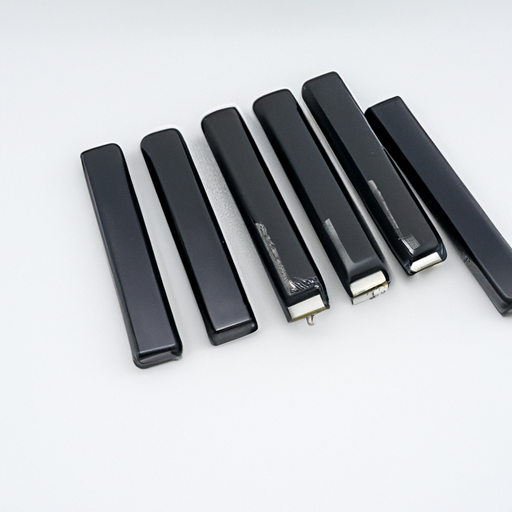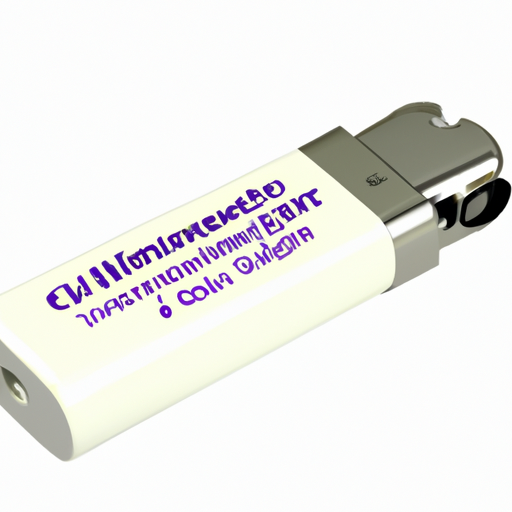What are the Advantages of Lithium Battery Charger Products?
I. Introduction
In recent years, lithium batteries have become the go-to power source for a wide range of applications, from consumer electronics to electric vehicles and renewable energy systems. Their popularity stems from their high energy density, lightweight nature, and long cycle life. However, to maximize the benefits of lithium batteries, the importance of using appropriate lithium battery chargers cannot be overstated. This article explores the advantages of lithium battery charger products, highlighting their efficiency, safety features, versatility, and future trends.
II. Understanding Lithium Batteries
A. Composition and Chemistry of Lithium Batteries
Lithium batteries are rechargeable power sources that utilize lithium ions to store and release energy. They consist of an anode (typically made of graphite), a cathode (often composed of lithium metal oxides), and an electrolyte that facilitates the movement of lithium ions between the anode and cathode during charging and discharging. This unique composition allows lithium batteries to achieve higher energy densities compared to traditional battery types.
B. Common Applications of Lithium Batteries
1. **Consumer Electronics**: Lithium batteries are widely used in smartphones, laptops, tablets, and other portable devices due to their lightweight and compact design.
2. **Electric Vehicles**: The automotive industry has embraced lithium batteries for electric vehicles (EVs) because of their ability to provide high power output and long driving ranges.
3. **Renewable Energy Storage**: Lithium batteries play a crucial role in storing energy generated from renewable sources like solar and wind, enabling a more sustainable energy ecosystem.
C. Comparison with Other Battery Types
When compared to traditional battery types such as lead-acid and nickel-cadmium, lithium batteries offer several advantages, including higher energy density, longer cycle life, and lower self-discharge rates. These characteristics make them more efficient and cost-effective in the long run.
III. Advantages of Lithium Battery Chargers
A. Efficiency and Speed
1. **Fast Charging Capabilities**: One of the most significant advantages of lithium battery chargers is their ability to charge batteries quickly. Many modern chargers can fully charge a lithium battery in a fraction of the time it takes with traditional chargers.
2. **Energy Conversion Efficiency**: Lithium battery chargers are designed to minimize energy loss during the charging process. This efficiency not only reduces charging time but also lowers energy costs.
B. Smart Charging Technology
1. **Built-in Microcontrollers**: Many lithium battery chargers come equipped with microcontrollers that monitor the charging process in real-time. This technology ensures that the battery is charged optimally, preventing damage and enhancing performance.
2. **Adaptive Charging Algorithms**: Smart chargers can adjust their charging rates based on the battery's state of charge and temperature, ensuring that the battery receives the right amount of power at all times.
3. **Safety Features**: Advanced safety features, such as overcharge protection and temperature control, are integrated into lithium battery chargers to prevent potential hazards and extend battery life.
C. Compact and Lightweight Design
1. **Portability Benefits**: Lithium battery chargers are often designed to be compact and lightweight, making them easy to transport. This is particularly beneficial for users who need to charge devices on the go.
2. **Space-Saving Features**: The small size of lithium battery chargers allows for efficient use of space, whether at home, in the office, or in a vehicle.
D. Longevity and Durability
1. **Reduced Wear on Batteries**: By utilizing smart charging technology and efficient charging methods, lithium battery chargers help reduce wear and tear on batteries, leading to longer overall lifespans.
2. **Extended Battery Life**: Proper charging practices facilitated by quality chargers can significantly extend the life of lithium batteries, providing users with better value over time.
E. Environmental Benefits
1. **Reduced Carbon Footprint**: The efficiency of lithium battery chargers contributes to a lower carbon footprint, as they require less energy to charge batteries compared to traditional chargers.
2. **Recycling and Sustainability Considerations**: Many lithium battery chargers are designed with sustainability in mind, using recyclable materials and promoting responsible battery disposal practices.
IV. Safety Features of Lithium Battery Chargers
Safety is a paramount concern when it comes to charging lithium batteries. Quality lithium battery chargers incorporate several safety features to protect both the user and the battery:
A. Overcharge and Overcurrent Protection
These features prevent the battery from being charged beyond its capacity, which can lead to overheating and potential failure.
B. Thermal Management Systems
Thermal management systems monitor the temperature of the battery during charging, ensuring it remains within safe limits to prevent damage.
C. Short Circuit Protection
This feature safeguards against short circuits, which can cause fires or damage to the charger and battery.
D. Certification and Compliance Standards
Many lithium battery chargers meet rigorous safety standards and certifications, providing users with peace of mind regarding their safety and reliability.
V. Versatility and Compatibility
A. Multi-device Charging Capabilities
Lithium battery chargers are often designed to charge multiple devices simultaneously, making them versatile for users with various gadgets.
B. Compatibility with Various Lithium Battery Chemistries
These chargers can accommodate different lithium battery chemistries, such as lithium-ion and lithium-polymer, ensuring broad applicability across devices.
C. Use in Diverse Applications
From home use to industrial applications and automotive settings, lithium battery chargers are adaptable to various environments, making them a valuable investment.
VI. Cost-Effectiveness
A. Long-term Savings on Battery Replacements
Investing in a quality lithium battery charger can lead to significant long-term savings by extending the life of batteries and reducing the frequency of replacements.
B. Reduced Energy Costs Due to Efficiency
The energy efficiency of lithium battery chargers translates to lower electricity bills, making them a cost-effective choice for consumers and businesses alike.
C. Value Proposition of Investing in Quality Chargers
While high-quality lithium battery chargers may have a higher upfront cost, their durability, efficiency, and safety features provide excellent value over time.
VII. Future Trends in Lithium Battery Charging Technology
A. Advancements in Charging Speed
The future of lithium battery charging technology looks promising, with ongoing research focused on ultra-fast charging capabilities that could revolutionize how we power our devices.
B. Integration with Renewable Energy Sources
As the world shifts towards renewable energy, lithium battery chargers are expected to integrate seamlessly with solar and wind energy systems, promoting a more sustainable energy landscape.
C. Innovations in Wireless Charging Technology
Wireless charging technology is rapidly evolving, and future lithium battery chargers may incorporate this feature, providing even greater convenience for users.
VIII. Conclusion
In summary, lithium battery chargers offer numerous advantages that enhance the performance and longevity of lithium batteries. Their efficiency, smart charging technology, compact design, and safety features make them an essential component of modern energy solutions. As we move towards a more sustainable future, the role of lithium battery chargers will only become more critical. Choosing the right charger is not just about convenience; it’s about investing in a reliable, efficient, and environmentally friendly power solution.
IX. References
1. "Lithium-Ion Battery Basics." U.S. Department of Energy.
2. "The Future of Battery Technology." International Energy Agency.
3. "Understanding Lithium Battery Chargers." Battery University.
4. "Advancements in Battery Technology." Journal of Power Sources.
5. "Sustainable Energy Storage Solutions." Renewable Energy World.
This blog post provides a comprehensive overview of the advantages of lithium battery charger products, emphasizing their importance in today's technology-driven world. By understanding these benefits, consumers can make informed decisions about their charging solutions, ultimately leading to better performance and sustainability.













